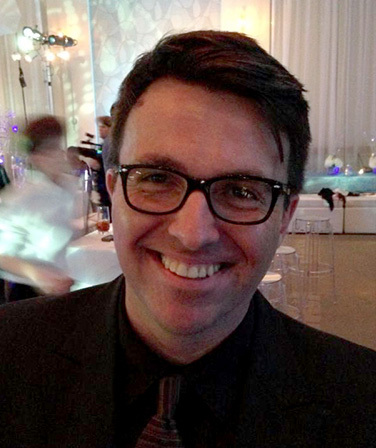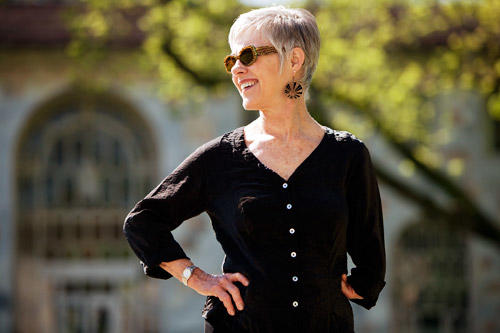
People
Director
Paul Kelleher

Paul Kelleher (B.A., Duke; Ph.D., Princeton) is Associate Professor of English at Emory University. A specialist in eighteenth-century British literature and gender/sexuality studies, his teaching and research range from the seventeenth to the twentieth century, and intersect with the disciplines of moral philosophy and political theory. More recently, his abiding interest in how the Enlightenment anticipated and laid the groundwork for our own culture of "normality" has lead him into the field of disability studies.
He is the author of several articles, including "Reason, Madness, and Sexuality in the British Public Sphere" (The Eighteenth Century: Theory and Interpretation, Fall 2012); "'The Glorious Lust of Doing Good': Tom Jones and the Virtues of Sexuality" (Novel: A Forum on Fiction, Spring/Summer 2005); and "If Love Were All: Reading Sedgwick Sentimentally" (in the Routledge volume, Regarding Sedgwick: Essays on Queer Culture and Critical Theory, 2002).
His first book, Making Love: Sentiment and Sexuality in Eighteenth-Century British Literature (Bucknell University Press, 2015), examines how eighteenth-century British literature and philosophy fashioned an ideological alliance between heterosexual desire and moral feeling. His second book, Deformities: Reading Disability in Eighteenth-Century Philosophy, Literature, and Politics (in progress), concentrates on eighteenth-century representations of disability and offers an in-depth examination of how the concept of “deformity” traverses and shapes a wide range of Enlightenment-era texts and contexts.
Two pieces from this project have been published: "Defections from Nature: The Rhetoric of Deformity in Shaftesbury's Characteristics" appears in the edited volume The Idea of Disability in the Eighteenth Century (Bucknell University Press, 2014), and "The Man Within the Breast: Sympathy and Deformity in Adam Smith's The Theory of Moral Sentiments" appears in the journal Studies in Eighteenth-Century Culture (2015), and in expanded form, in the edited volume Inventing Agency: Essays on the Literary and Philosophical Production of the Modern Subject (Bloomsbury, 2017).
Founding Directors
Benjamin Reiss
 Benjamin Reiss (Ph.D. UC Berkeley, 1997) specializes in 19th-century American literature, disability studies, and health humanities.
Benjamin Reiss (Ph.D. UC Berkeley, 1997) specializes in 19th-century American literature, disability studies, and health humanities.
His new book "Wild Nights: How Taming Sleep Created Our Restless World," will be published by Basic Books in 2017. It uses literature, history, science, and psychology to explain how our society created rules and expectations for human sleep that seem to work for few and are thus in constant need of micro-management, medical attention, and pervasive worry.
Reiss is also the author of The Showman and the Slave: Race, Death, and Memory in Barnum's America (Harvard UP, 2001; repr. 2010) and Theaters of Madness: Insane Asylums and Nineteenth-Century American Culture (University of Chicago Press, 2008), as well as essays in journals including American Literature, American Literary History, Social Text, ELH, American Quarterly, Sleep Health, the Los Angeles Review of Books, the Chronicle of Higher Education, and Slate. He is co-editor editor of the Cambridge History of the American Novel (Cambridge University Press, 2011) and Keywords for Disability Studies (New York University Press, 2015). He is the recipient of grants and fellowships from the Guggenheim Foundation, the Mellon Foundation, the NEH, the Louisiana Board of Regents, and Emory's Fox Center for Humanistic Inquiry.
Rosemarie Garland-Thomson
 Rosemarie Garland-Thomson is Professor Emerita of English at Emory University, where her fields of study are disability studies, American literature and culture, feminist theory, and bioethics. Her work develops the field of critical disability studies in the health humanities, broadly understood, to bring forward disability access, inclusion and identity to communities inside and outside of the academy. She is the author of Staring: How We Look and several other books. Her current book project is Habitable Worlds: Disability, Technology, and Eugenics.
Rosemarie Garland-Thomson is Professor Emerita of English at Emory University, where her fields of study are disability studies, American literature and culture, feminist theory, and bioethics. Her work develops the field of critical disability studies in the health humanities, broadly understood, to bring forward disability access, inclusion and identity to communities inside and outside of the academy. She is the author of Staring: How We Look and several other books. Her current book project is Habitable Worlds: Disability, Technology, and Eugenics.